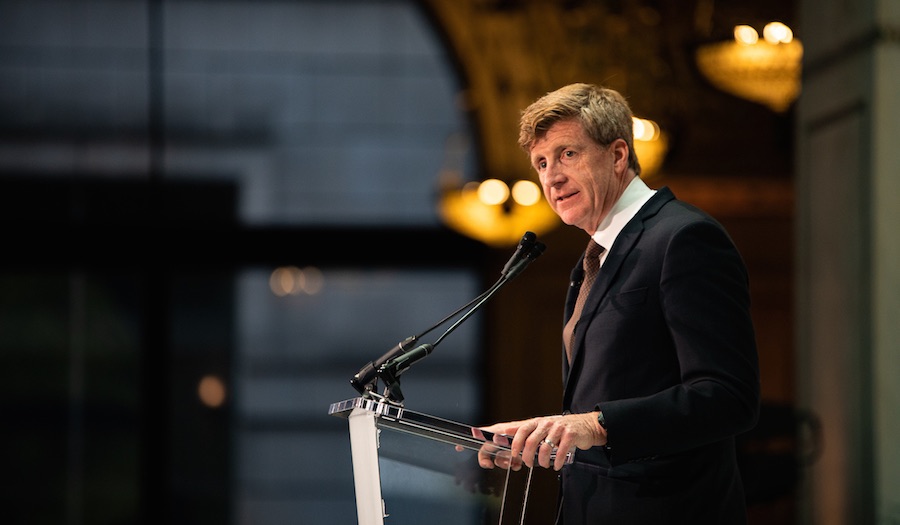Why the Urgency of Our Nation’s Mental Health Crisis Should Be Addressed in State of the Union

According to the Substance Abuse and Mental Health Services Administration (SAMHSA), one in five U.S. adults experienced mental illness in 2018, and one in 14 people aged 12 or older had a substance use disorder that same year.
U.S. life expectancy has decreased significantly in recent years, largely due to drug overdoses, suicides, and alcohol use. Although new data shows it increased slightly in 2018, it is still lower than its peak in 2014—and lower than the life expectancy in 10 peer nations, despite the U.S. spending far more per capita on health care.
According to a study in the Journal of the American Medicine Association (JAMA), fatal drug overdoses increased nearly fourfold between 1999 and 2018 among adults ages 25 to 64 years, while alcohol-related liver disease increased 40% and suicide rates increased 38%. And while skyrocketing overdose death rates did fall modestly in 2018, they continue to outnumber deaths from motor vehicle accidents and are still rising for fentanyl, cocaine, and psychostimulants such as methamphetamine.
We can no longer ignore the impact of these deaths of despair. The writing is on the wall: there is no health without mental health.
People across the country are desperate for action. We want President Trump to acknowledge the crisis and take urgent steps to address it in a thorough, comprehensive manner—rather than issuing piecemeal “solutions” with short shelf lives. We need a firm commitment from the President to increase federal funding by at least $20 billion per year to combat the mental health crisis, which includes the scourge of addiction devastating families coast to coast.
While federal discretionary appropriations to combat the opioid epidemic increased from FY2017 to FY2018, total spending still amounts to about half of the $14.4 billion appropriated for HIV/AIDS—even though more people are dying from opioid overdoses.
The administration must also commit to following through on the recommendations put forth by the President’s Commission on Combating Drug Addiction and the Opioid Crisis back in 2017. Among many other things, the final Commission report called for the Department of Labor to have enhanced penalty and enforcement powers against insurers who fail to adhere to the Mental Health Parity and Addiction Equity Act of 2008 (Federal Parity Law), which requires them to cover treatment for mental health and substance use disorders no more restrictively than treatment for illnesses of the body, such as diabetes and cancer.
A recent report by the actuarial firm Milliman found that insured individuals are paying more out-of-pocket for mental health/addiction care than they are for medical care—largely because health plans continue to reimburse mental health/addiction providers far less than their primary care/specialist counterparts, often causing those providers to stop accepting insurance altogether. Consequently, people are depleting retirement accounts and taking out second mortgages to cover costs. Frustrated loved ones are often forced to give up.
At the heart of the matter is the fact that those with mental health and addiction challenges continue to face a separate and unequal system of care in this country. We must prioritize integration in health care to truly make a difference. Properly trained professionals, screenings, and early interventions can help to identify people with mental health or substance use concerns “before stage four.”
Prioritizing integration also means funding technological advances such as telepsychiatry to bridge the gap between providers and patients, especially in rural areas, and utilizing digital innovations to track biomarkers in the body, which can shed light on important patterns and trends for treatment.
And we can’t overlook the basic fundamentals of well-being. Addressing social determinants of health such as housing and access to healthy food is an essential part of the systemic change we need. Stability at the community level is critical to prevention, treatment, and recovery. It also plays a major role in combatting homelessness, which has become an epidemic in cities across the country. On any given night over 500,000 people experience homelessness in the U.S.—many of whom are struggling with mental health or substance use disorders. Is it any wonder that our jails and prisons are now serving as modern-day “asylums?”
As a nation, we must do better at fostering compassion for those with mental health and substance use disorders. Diseases of the brain are no different than diseases of the body. I, for one, would like to see our president model empathy and understanding rather than perpetuate harmful stereotypes, for example, those surrounding mental illness and gun violence.
It is imperative that our nation’s leaders are in touch with what families experience each day. As the 2020 election cycle ramps ups, voters must be equipped to demand action on mental health and addiction from all candidates, including President Trump. That’s why, last year, I joined Sen. Gordon Smith as co-chair of Mental Health for US, a nonpartisan initiative designed to elevate mental health and addiction in policy conversations during the 2020 election cycle. Almost 90 advocacy groups have joined the initiative thus far and are making great strides in educating voters across the country.
Now, more than ever, people are beginning to speak with one powerful voice, demanding change for themselves and their loved ones. We don’t need any more thoughts and prayers. What we need is informed decision-making, true dedication to this cause, and most importantly, action. Lives are at stake, Mr. President.
This essay was featured in the February 2nd edition of The Sunday Paper. The Sunday Paper inspires hearts and minds to rise above the noise. To get The Sunday Paper delivered to your inbox each Sunday morning for free, click here to subscribe.

